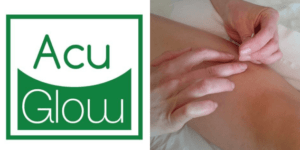Acupuncture works using a number of different mechanisms; firstly, it stimulates the release of powerful painkilling and anti-inflammatory substances from the brain. It also changes the way the body responds to pain. Acupuncture promotes homeostasis or a return to a state of balance, this is why we say acupuncture stimulates the body to heal itself. Acupuncture treatment has influence over the nervous, cardiovascular, endocrine and immune systems of the body.
Because the needles are very fine, there is no pain on insertion of the needle. The sensations that may be felt can include some tingling, or slight heaviness in the area. As the treatment takes effect patients typically feel an overall feeling of relaxation and well-being.
Acupuncture needles are very fine, with a diameter similar to that of a human hair. All needles are sterile and single use.
The answer to this will depend on the condition being treated, the severity of the symptoms and the duration of the condition. It also varies from patient to patient. A very acute condition usually sees results in the first few treatments, while a more chronic condition will typically require more treatments before significant changes are seen.
Yes, dry needling is provided. For more information on dry needling, see here.
When you arrive, we will find out a bit more about you, devise a treatment plan, and explain everything about your treatment.
As a member of the AFPA(Acupuncture Foundation Professional Association), all treatments provided are approved for cover from all the major health insurance companies in Ireland. Please check your individual policy to confirm coverage of acupuncture treatment.
The safety of acupuncture has been extensively researched and found to be very safe. Acupuncture, when performed by a trained acupuncturist is very safe with a very small number of adverse events. From the EBA Safety evidence summary: ‘Out of 4,441,103 acupuncture treatments, the number of reported serious adverse events was only 11.’ It continues, ‘“The risks associated with acupuncture can be classified as negligible, and acupuncture is a very safe treatment in the hands of competent practitioners.”(White, 2006)’ Read more here: Evidence Based Acupuncture – Safety
Research into acupuncture as a medical treatment has grown exponentially in the past 20 years, increasing at twice the rate of research into conventional biomedicine. Over this period, there have been over 13,000 studies conducted in 60 countries, including hundreds of meta-analyses.
While acupuncture enjoys high-level clinical evidence for dozens of conditions, translating trial research into official medical guidelines can take time. However, a recent review examined clinical guideline recommendations from around the world made by a variety of groups including government health institutions, national guidelines, and medical specialty groups. Over a 27 year period, they found 2,189 positive recommendations for acupuncture for 204 health issues, mainly in guidelines published in North America, Europe and Australasia. These official recommendations indicate that acupuncture’s evidence is now acknowledged by medical experts and that acupuncture is no longer ‘alternative.’ Indeed, this new data illustrates that acupuncture has become one of the most widely recommended treatments in modern medicine.
Read more here: https://www.evidencebasedacupuncture.org/acupuncture-scientific-evidence/

Here are 3 questions you must ask your provider
before you book your first appointment.